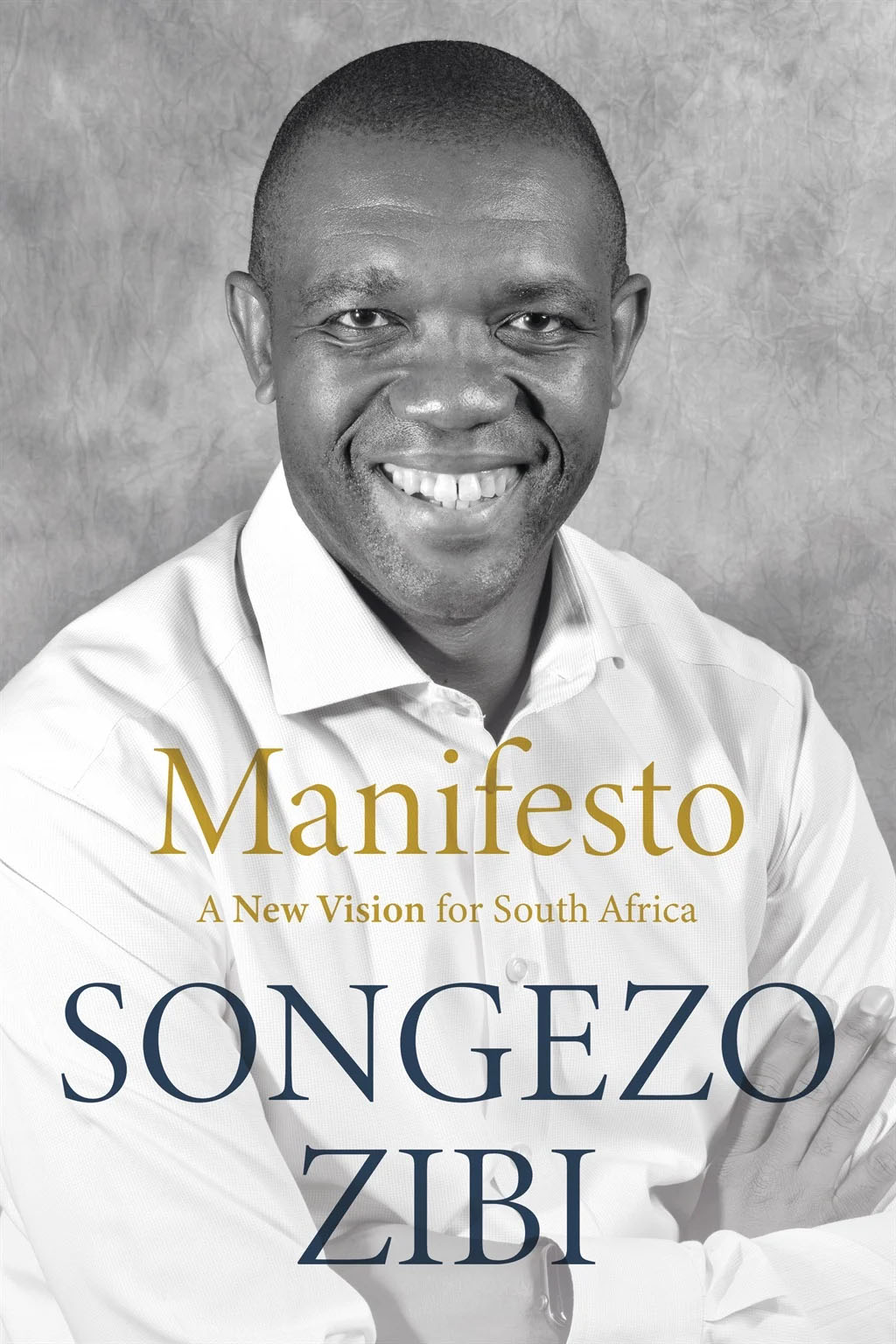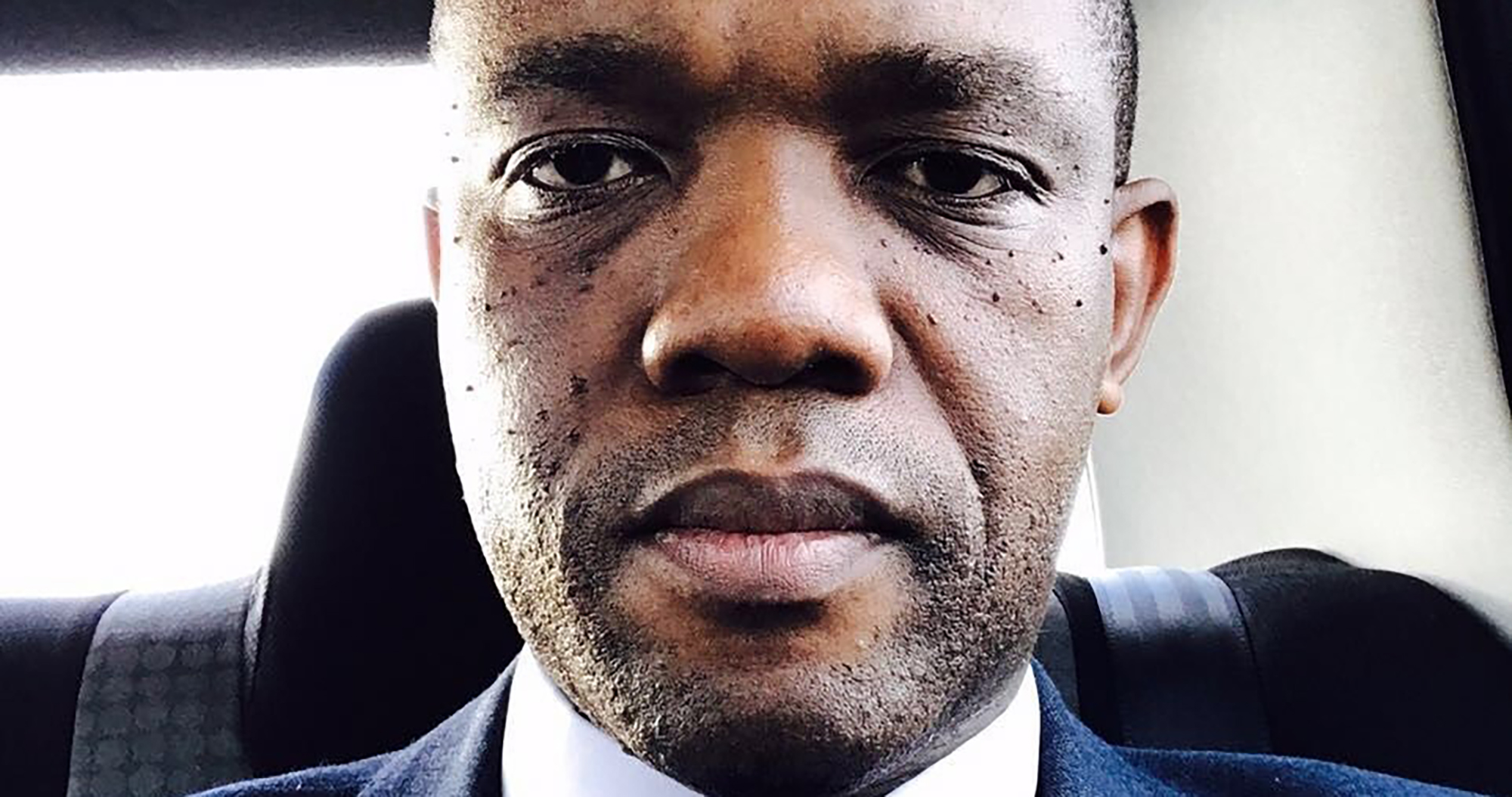There is an idiom in everyday Afrikaans that, when deployed, usually amounts to a challenge: haal uit en wys, loosely translated as “bring your game” or “show your stuff”.
Former Business Day editor, author and chair of the Rivonia Circle Songezo Zibi does just that in his recently published Manifesto: A New Vision for South Africa (Macmillan).
That there is an appetite for the challenge Zibi throws out to South Africans at this point in our history is evidenced in the bestseller status Manifesto has reached since its publication in June.
Like Martin Luther who nailed his Ninety-Five Theses to the door of the Schlosskirche in Wittenberg in 1517, sparking the Protestant Reformation, this is Zibi’s “so far and no further” moment.
Many South Africans feel themselves in the same national political cul-de-sac seeking to make a swift three-point-turn out of the dead end.
Read Ferial Haffajee's piece on Daily Maverick: WINDS OF CHANGE, 2022
Songezo Zibi says he will run for president as he tables a manifesto for a new society; more will follow.
Zibi and other political thinkers have nailed their theories and ideas of what modern South Africa could look like to the mast of modernity and realism in a rapidly changing world plagued by geopolitical and economic shape-shifting.
In South Africa, as Zibi points out, it is the poor and the working class who occupy the “current sphere of struggle” and for whom “material issues that should occupy our national life are not a matter of casual or intellectual observation but one of life and death”. Marches, strikes and service-delivery protests are all evidence of this.
In democracies, the noisiest class “is usually the professionals”, the author adds. And it is this class that has the means and tools of modern communication, who are educated and who, in theory, “have the ability to engage in intellectual critique of the actions of powerful interests in society”.
Zibi’s Manifesto is a reveille, a call “on all right-thinking South Africans who care for their fellow citizens to unite behind common values, national priorities and solutions to our problems”, as he sets out in the introduction.

Zibi intends to contest the 2024 national elections believing South Africa “is currently in the hands of an old elite”.
Successful countries, he writes, are reshaped and run by people who have professional experience and the capability to modernise political and other key institutions in those countries.
“It is time for a changing of the guard but not of the nature demanded by the likes of those in the ANC axis who want their turn at the trough.”
Those South Africans on whom “the country’s democracy has bestowed professional skill, global citizenship and connections and the ability to plan for the long term” should step up, haal uit and wys, emerge from the corporate woodwork, give it a bash and help form a new and cohesive “professional class”.
This class, says Zibi, is made up of people from diverse backgrounds and life experiences, with some who grew up privileged, and many, like Zibi himself, whose origins are the rural villages of the Eastern Cape. Those, too, from small towns, informal settlements and working-class or poor families have the power and skills “to make an organised effort to change society”.
Zibi’s is an attempt to spark and fan a conversation about “national renewal” with the specific aim of “producing, direct, materially beneficial outcomes for South Africa’s most vulnerable”.
He is one of countless commentators and analysts over the years who have flagged that South Africa stands at the precipice of another historic moment while the ANC, as the governing party, devours itself and its children in full public view, taking the country down with it.
Revolutions need enemies
Back when the Rivonia Circle was still the Midrand Group, in about 2012, the party was already regarded as “ungovernable” — so much so that Gwede Mantashe, the late Jackson Mthembu and then Gauteng Premier Nomvula Mokonyane paid the group a visit in an attempt to temper its criticism.
It didn’t work and afterwards members of the “group” were labelled “counter-revolutionaries” beholden to foreign interests.
A “revolution” always needs an enemy. And in a constitutional democracy, the increasingly calcified and bloated ANC first turned on “counter-revolutionaries” of all hues and frequencies, and then on itself. And, in some instances, accusing the very guaranteed freedoms, hard fought for and won, of restricting the freedoms of the majority.
So topsy turvy is the world.
Author and political analyst Prince Mashele was an early member of the Midrand Group. Writing in Daily Maverick recently, he likened life in South Africa under the ANC to “a promising rocket that exploded shortly after take-off. We have now reached a stage where all sane South Africans agree that our country has no future in the hands of the governing party.”
It is this future that Zibi tries to address and imagine in Manifesto. Central to the discussion is that of the “reimagined state” a “new society” as well as a deep overhaul of the political economy.
While globally and locally there is growing voter disenchantment with the quality of political parties, their policies, their leaders and representatives, Zibi’s point is that there is enough energy, brainpower and know-how to realise the country’s full potential.
This is a time that has also seen former DA leader, “business activist” and founder of the One South Africa Movement Mmusi Maimane call for individuals to stand up and be counted among those “who are prepared to salvage what is left of the state”.
Maimane’s vision is “to elect the best individuals to Parliament on their own merit, not having politicians deployed by political parties”. In March 2022, Maimane joined the investment house SiSebenza as a partner and shareholder.
What does change look like?
A coalition of independents, the One South Africa Movement intends to contest the 2024 elections. The party, like Zibi and others, will argue for the contestation of the proportional representation electoral system.
So, according to Zibi, how will this work?
Zibi suggests reforms to aspects of the Constitution, state institutions including Parliament, the electoral system and the economy. Detailed chapters are dedicated to each issue in the 207-page Manifesto.
Mcebisi Jonas, the former deputy minister of finance, has also called for a referendum on the electoral system and to “turn the political system on its head and liberate the country from the clutches of party barons”.
Zibi attempts to clarify the view in South Africa of “the state” and “government”, pointing out that the state is often conflated with the government.
“Government is a component of a state,” he writes. The state should function as “an intermediator of the interests of society, taking care to ensure that no one interest group unduly dominates and therefore limits the liberties, rights and interests of another”.
The country’s electoral system, posits Zibi, was “a significant obstacle to democratisation” and Parliament can be made better “if we are prepared to make some bold changes”.
He argues for the direct election of either Members of Parliament or the President, as the proportional representation system holds members beholden to a party and not voters. Although this system had made sense at the time, “it is time for it to go”.
“In its place, I propose that we arrange the location of power so that voters have greater influence than they do now over the conduct of political parties and individual MPs and provincial legislature members.”
Constitutional expert Pierre de Vos has written on the long and difficult journey this may prove to be, with the concomitant booby-traps hidden in the detail.
Zibi proposes a voting district system in which political parties would either contest all districts or some, depending on where each believed it stood the best chance of being elected.
“In this way, residents of a specific voting district will automatically become a constituency of whichever MP represents it, placing obligations on that MP to regularly consult with those residents when parliament is in recess”.
The appointment of key public servants, he also argues, should include a parliamentary interview open to the public. Positions where this method should be used include the South African Revenue Service commissioner, the national police commissioner, the director-general of the National Treasury, the national director of public prosecutions and the governor of the Reserve Bank.
Deepening participation
Political parties could ensure that their top 30 MPs are people with appropriately diverse higher-education qualifications and professional experience, Zibi proposes.
He envisages a public service that has a reasonable degree of independence from political interference as well as a constitutional amendment to “abolish provinces”. Zibi proposes these be replaced by municipal and administrative districts, each with an allocation of MPs contingent on the size of the district population.
This move, he argues, would bring government matters “closer to the people” and “deepen democratic participation”.
Judicial reform would involve the speeding up of criminal cases as well as shaping a system in which not only the wealthy have access to justice. Legal representation “is beyond the reach of most South Africans, including those who are employed”, notes Zibi.
Other means to the end are “citizen responsibility” as well as understanding the global economic climate. Economic policy, says Zibi, “is often characterised by ignorance, ideological dogma, myopia and outright dishonesty”.
“It does not help that we have a history of conspiracy theories where ‘the west’ lives rent-free in the minds of many South Africans as a bogeyman that is always trying to destroy the country,” Zibi writes.
The discourse on the economy also appears to assume that South Africa has free rein to make whatever policy decisions it wants “with absolutely no adverse consequences”.
“This is a fantasy,” says Zibi.
Zibi’s Manifesto is a bracing and timely read. It is frank and unflinching about the challenges the country faces.
It was British art historian, museum director and broadcaster Sir Kenneth Clarke who remarked: “Vigour, energy, vitality: all the civilisations — or civilising epochs — have had a weight of energy behind them.”
Zibi’s vision contains exactly this – vigour, energy, vitality. Can it be realised? That’s up to you. DM
Please join Daily Maverick’s Marianne Thamm in conversation with Songezo Zibi about Manifesto on Tuesday, 26 July, at noon. Register for the webinar here.





